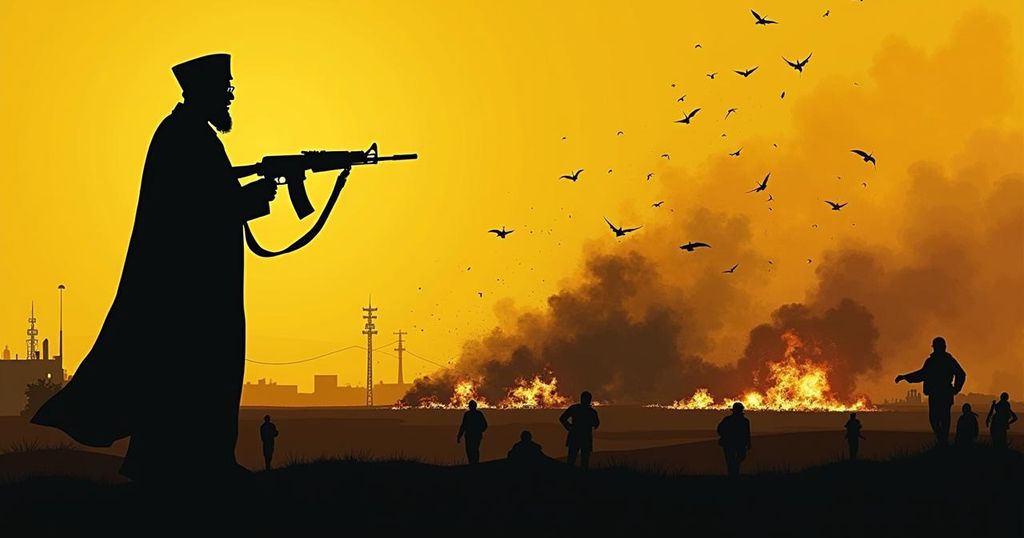The Assassination of Hassan Nasrallah: A Turning Point for Hezbollah and the Region

Hassan Nasrallah, the leader of Hezbollah, was killed in an Israeli airstrike in Beirut, marking a significant turning point for the organization and escalating fears of conflict in the region amid ongoing tensions, particularly following the war in Gaza. Nasrallah had been a key figure in Hezbollah and Lebanese politics, shaping the group’s strategy against Israel and fostering alliances with militant organizations. His death could have profound effects on Hezbollah’s future operations and the regional balance of power.
Hassan Nasrallah, the prominent leader of Hezbollah, has been reported killed in an Israeli airstrike, which targeted the militant group’s stronghold in the southern suburbs of Beirut, known as Haret Hreik. Nasrallah, 64 years of age, had been a significant figure in Lebanese politics and militant activities since succeeding his predecessor in 1992. Under his leadership, Hezbollah evolved into a major paramilitary organization with considerable political influence, predominantly shaped by its conflict against Israel and its involvement in regional conflicts, including the Syrian civil war. Nasrallah’s death is perceived as a critical development amidst heightened tensions between Israel and Hezbollah, particularly following the escalation of hostilities following the recent war in Gaza. Hezbollah confirmed his death, asserting that he had “joined his fellow great martyrs” in the fight against Israeli forces. Nasrallah was awarded admirable stature among his followers, revered for his strategic acumen and dedication to what he termed the resistance against Israel. The consequences of Nasrallah’s passing could significantly impact the dynamic of the region, raise prospects of escalation, and alter Hezbollah’s operational and strategic direction in the future. Throughout his tenure, Nasrallah led Hezbollah in several significant encounters with Israeli forces, including the 2006 Lebanon War, which ended in a stalemate but bolstered his image within the Arab community. He was also instrumental in mobilizing support for Palestinian causes, demonstrating an unwavering commitment to opposing Israeli actions not only in Lebanon but throughout the region. His demise raises fears of intensified conflict, especially given the recent exchanges of fire along the Lebanon-Israel border, which had already seen an increase in military activities in solidarity with Hamas amidst the ongoing Gaza conflict, resulting in severe casualties and destruction in Lebanon over the past week. Nasrallah’s legacy as a leader who transitioned Hezbollah into a force to be reckoned with continues to resonate despite his controversial and often polarizing views on regional politics. He will be remembered as a pivotal figure in Lebanon’s turbulent history, maneuvering through the complexities of both political authority and militant opposition.
Hassan Nasrallah ascended to leadership of Hezbollah in 1992, a role that would see him transform the organization into a formidable political and military entity in the Middle East. His leadership coincided with significant events and evolutions in both Lebanese and regional contexts, including the Israeli occupation of Lebanon, the fall of major regional leaders like Saddam Hussein, and the emergence of sectarian conflicts in Syria. Nasrallah cultivated relationships with Tehran and formulated alliances with various militant groups, including Hamas and other factions resisting Israeli policies. His influence allowed Hezbollah to engage in military confrontations with Israel while simultaneously participating in Lebanon’s political landscape, thus merging armed struggle with governance—a unique characteristic of Hezbollah’s dual role. Over the years, Nasrallah’s strategic vision garnered him a significant following among Lebanon’s Shiite population and respect across the Arab world. However, he also faced criticism for his involvement in the Syrian civil war, where many perceived Hezbollah as acting against the interests of Arab revolutions. In recent months, with the increase of hostility following the Gaza conflict, his position became even more critical, rallying support for the resistance against Israel from both within and outside Lebanon.
The death of Hassan Nasrallah marks a pivotal moment for Hezbollah and the broader Middle East, as his leadership encapsulated a critical era of resistance against Israeli forces. Nasrallah’s strategic methodologies and his role in navigating Hezbollah through conflicts and political landscapes established him as an influential figure among both supporters and adversaries. His demise amid escalating tensions raises concerns over potential ramifications in the region, possibly leading to broader conflicts as Hezbollah and its allies respond to this dramatic shift in leadership. It remains to be seen how Hezbollah will reconcile Nasrallah’s legacy with the realities of changing power dynamics and ongoing conflicts, and what impact this will have on the trajectory of armed resistance and regional stability.
Original Source: apnews.com







